The left winger's stay would be short lived, as he would join Rudá Hvēzda (Red Star) Brno the following season for a run that would last the next 20 seasons. Černý would score 13 goals his first season with Brno and then upping that to 16 in 1959-60, which also saw Brno and Černý capture the first seven consecutive Czechoslovakian championships. Three seasons later, by which time the team had changed it's name to ZKL (meaning "Ball Bearing Factory") Brno in recognition of it's change away from being an army hockey club, Černý's career highs would creep up to 18 goals and 28 points before simply erupting for a stunning 44 goals and 56 points in only 32 games in 1963-64! His linemates during this time period were center Frantisek Vanek and right winger Rudolf Scheuer.
It would be the first of eight consecutive seasons with 20 goals or more, which included seasons of 34 in 1965-66, 30 in 1968-69 and 32 in 1969-70. The 1965-66 season also saw Černý and Brno capture not only the seventh Czechoslovakian championship of his career, but the first of three consecutive European Cups, which went to the top club team in Europe beginning in 1966 which included defeats of EV Füssen of Germany in 1966, Ilves Tampere of Finland in 1967 and fellow Czechoslovakians Dukla Jihlava in 1968.
Černý was named an assistant captain of HC Kometa in 1967-68 and succeeded veteran and linemate Vanek as team captain two seasons later in 1969, a position he would hold for four seasons. 1973-74 saw Černý achieve his final 20 goal season with 23, his ninth overall and his milestone 400th goal would arrive in 1976-77, a year after the team name again was changed, now to Zetor Brno. Černý would play one final season with HC Kometa Brno in 1977-78 and his 22 year career would come to a close with one final season with ATSE Graz in the Austrian league in 1978-79.
Černý's international career was typical of a top-flight European star of the era, as his domestic season would end early enough in the spring to make him available on an annual basis for the World Championships.
His first World Championship action came in 1959 on home ice at the age of just 19 in Prague and Bratislava, which netted him a bronze medal. 1961 resulted in a silver medal and a second bronze in 1963. Consecutive silver medals arrived in 1965 and 1966. Czechoslovakia took home a bronze in 1969 before Černý was named captain of the Czechoslovakian National Team in 1970, which saw Černý earn his fourth bronze medal. His final World Championships in 1971 brought him another silver, his fourth.
Černý's first Olympic Games came in 1960 and his first Olympic medal was a bronze in 1964, which was followed by a sliver medal in 1968.
The final chapter of his international career came at the 1972 Olympics where Černý was rewarded with another bronze medal, the 11 medal of his career out of 13 opportunities.
Following his playing career, Černý would go into head coaching, first in Austria and later in Czechoslovakia and the Czech Republic, including coaching the Czech U18 National Team from 2006 to 2010.
Černý's career was recognized with his induction into the IIHF Hall of Fame in 2007.
Today's featured jersey is a 1969 Czechoslovakia National Team Josef Černý jersey as worn in the emotionally charged 1969 World Championships when Czechoslovakia defeated the Soviet Union twice, thrilling the Czechs back at home who were still under occupation by the Soviets.

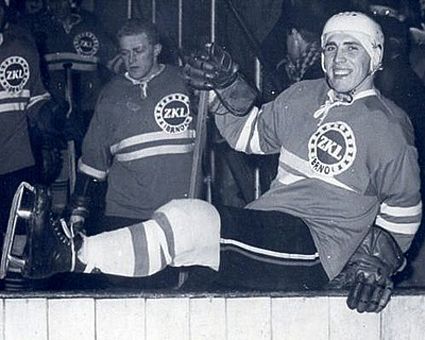
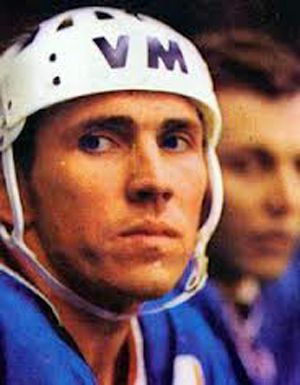
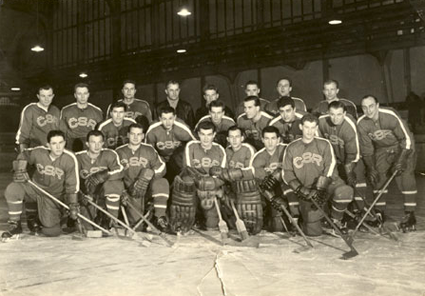
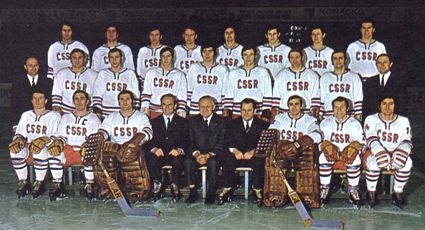
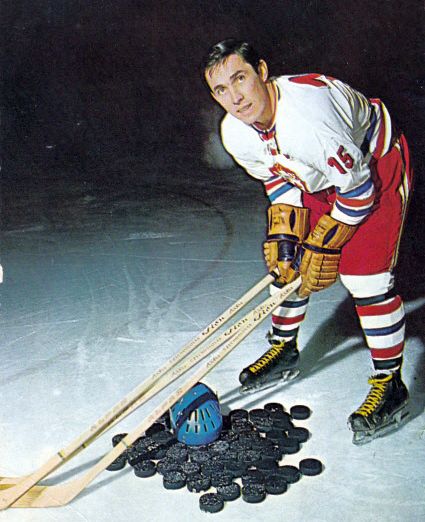
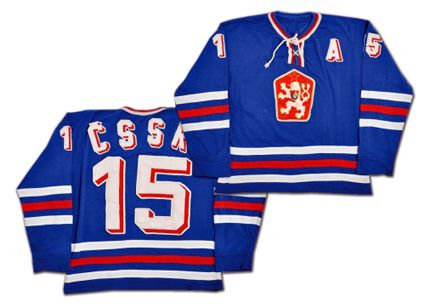










I wonder how Černý would have gone in the NHL if he was allowed to play in North America?
ReplyDelete